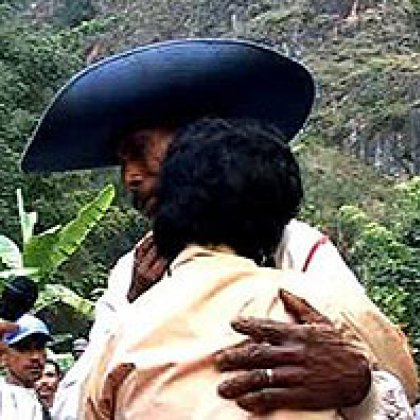
Touched by the stories of Australia’s stolen generations, UQ PhD graduate Helene van Klinken felt she could not let the tales of displaced East Timorese children go untold.
“I did not set out to write a PhD, but I felt I had to make public the stories about the transfers,” Ms van Klinken said.
“I also believed it was important that the information should be made available to the wider academic community.
“I thought that writing about the transfers as a PhD would help to ensure that my research was thorough and the story coherent.”
Living in Indonesia in 2000, Ms van Klinken learnt of the removal of East Timorese children from their families by Indonesian soldiers, a common occurrence, especially in the early years after the 1975 invasion.
In 2003, she volunteered at the Commission for Reception, Truth and Reconciliation in East Timor, an experience which helped her realise how widespread the practice had been.
Ms van Klinken also identified clear similarities between the situation in East Timor and the removal of Indigenous Australian children.
“The Indonesians thought they were doing good and acting out of noble intentions,” she said.
“The Indonesians who took away children wanted to help develop the province by educating the children, but they often did so with no regard for how parents and children might suffer because of their separation.
“Many parents were denied the right to raise their own children in their own social milieu, language and religion.
“The treatment of the East Timorese by the Indonesians is reflected in the transfer of children."
Unable to access any government records, Ms van Klinken’s research was reliant upon oral histories.
She conducted interviews with parents, children, carers in institutions, officials and leaders in East Timor and Indonesia.
With some children adopted by Indonesian soldiers and others sent to live in institutions, stories were diverse.
“In Indonesia experiences were varied, though most soldiers did send the children to school,” she said.
“Some children were treated no differently from the soldiers’ own children, while others had to work in slave-like conditions.
“Life in the institutions was often hard for the children because they could not visit their families in East Timor.
“Many ran away exposing them to further changes.”
The in-depth interviews also revealed that while some East Timorese children were thankful for their Indonesian education, others remained bitter that they had been separated from their families.
“Such an education would not have been possible under the Portuguese administration,” Ms van Klinken said.
“However, many of those who were sent away young now question why it was necessary for them to be separated at such a young age.
“Many suffered degrees of trauma because they left East Timor when a state of war or conflict existed; it was especially difficult to adjust to life in Indonesia for those who were taken forcibly and were old enough to recall it.”
Despite East Timor becoming an independent nation in 2002, Ms van Klinken said there were still barriers preventing families from reuniting.
“With independence for East Timor and democratisation in Indonesia, it is now much easier for children who were taken to Indonesia to try to find their families in East Timor,” she said.
“However, it still requires resources which most do not have.
“Similarly, parents in East Timor do not have the resources to go to Indonesia to search for their children.
“Indonesia has 230 million people – it is difficult to look for someone, and the children were taken to destinations all over the archipelago.”
Ms van Klinken’s PhD was completed through UQ’s School of History, Philosophy, Religion and Classics under the supervision of Professor Robert Elson and Dr Anne Brown.
Currently she is living in the Netherlands, and maintains an interest on issues relating to women and children in Indonesia.
Media: Ms van Klinken (+31 71 5288 019, +31 618 563283) or Penny Robinson at UQ Communications (07 3365 9723, penny.robinson@uq.edu.au)
.jpg)


